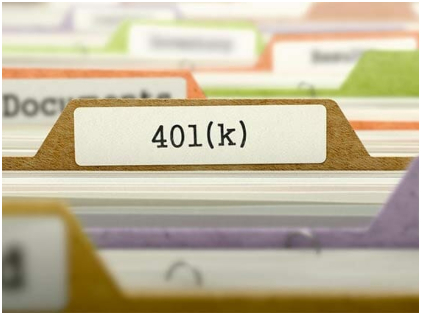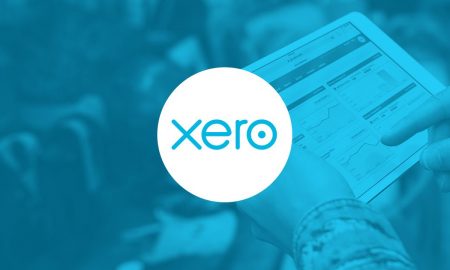
What Is A 401(k) Rollover And What Can You Do About It?

 A 401(k) is like a retirement savings scheme, offered by employers to their employees. It’s a government-managed account that is different from the original plan, and employees can make contributions automatically through their payrolls. The plan is ideal for retirement benefits. But in case you’re switching jobs, or you’re looking for a separate retirement account for better tax benefits.
A 401(k) is like a retirement savings scheme, offered by employers to their employees. It’s a government-managed account that is different from the original plan, and employees can make contributions automatically through their payrolls. The plan is ideal for retirement benefits. But in case you’re switching jobs, or you’re looking for a separate retirement account for better tax benefits.
It would help if you considered taking your money off your 402(1) account. This movement is popular as the 401(k) rollover. Several rollover options are available out there, but it’s important to evaluate the overall benefits before making a move. Here’s what you need to know regarding the apt rollover options.
401(k) Rollover – What Is It?
A 401(k) rollover simply means moving your funds out of your 401(k) account to proceed them elsewhere. People typically move the money into a tax-advantaged IRA account for better returns in the long run. Even when you’re changing the job and have the option to create a new 401(k) account under the guidelines of your latest employer, you might opt for a 401(k) rollover. Let’s discuss this in detail.
Rollover To A Roth IRA
 In layman’s terms, a Roth IRA account means a retirement account with special benefits. You have to pay tax on incoming transactions in this type of account, but the transactions will be completely tax-free for future withdrawals so, if you think that the tax will get higher in the future.
In layman’s terms, a Roth IRA account means a retirement account with special benefits. You have to pay tax on incoming transactions in this type of account, but the transactions will be completely tax-free for future withdrawals so, if you think that the tax will get higher in the future.
And it’s the best time to move the money to the Roth IRA accounts, then considering a 401(k) rollover to a Roth IRA account is appropriate. It will be beneficial in saving taxes in the long run. This is especially when you’re going to get the whole amount free of taxes. This will help you avoid RMD (required minimum distributions), the Roth 401(k).
Rollover To A Traditional IRA
When it comes to transferring the funds to a traditional IRA or a traditional 401(k) is straightforward. You can opt for a direct rollover, or you can also ask for a check from your 401(k) provider to deposit into your new individual retirement account. The direct rollover is also called a trustee-to-trustee transfer. If you can deposit the entire amount in a tax-advantaged IRA within 60 days, you shouldn’t worry about any penalties or taxes.
Rollover To Another 401(k)
 Suppose you don’t want any hassle and are happy to retain all your retirement fortune in one account for future withdrawal. In that case, this will be an ideal option, especially during shifting to new employment. There is a huge advantage of this movement. It gets the best out of the “Rule of 55” set by the government. As the 401(k) account is tax-free, you can safely assess the future investment options while keeping everything in one place. This is where the option comes in handy.
Suppose you don’t want any hassle and are happy to retain all your retirement fortune in one account for future withdrawal. In that case, this will be an ideal option, especially during shifting to new employment. There is a huge advantage of this movement. It gets the best out of the “Rule of 55” set by the government. As the 401(k) account is tax-free, you can safely assess the future investment options while keeping everything in one place. This is where the option comes in handy.
Why Should You Opt for A 401(k) Rollover?
Here’s what you need to know about the potential benefits of a 401(k) rollover in case you’re thinking of it.
Everything in One Place – Several government reports suggest that a hefty amount of money goes unclaimed annually. People lose track of them and have to go for paid accounts for maintaining their funds. So, for the people who tend to change organizations, a 401(k) account can be a cheaper option for them to keep everything in a place, a hassle-free way of savings for sure.
 Obtain More Investment Choices – If you want to consider more diverse investment plans, then rolling your money into another 401(k) account is not an option you should look for. Instead, go for an IRA account to widen the range of your investments.
Obtain More Investment Choices – If you want to consider more diverse investment plans, then rolling your money into another 401(k) account is not an option you should look for. Instead, go for an IRA account to widen the range of your investments.
Lower Fees – Usually, the 401(k) accounts are of very lower maintenance. But sometimes, Employers may charge you high amounts for administrative fees or limit your access to the account. In that case, you can go for any rollover, be it to another 401(k) or IRA accounts, to save a lot of money.
Sometimes you are left with no choice. But to move the entire fund into another account, rolling over your money sometimes doesn’t make any sense at all. It is mostly when individual retirement accounts are less safe. You are doing okay with your old 401(k) accounts. So before going for any such maneuver, it is advisable to consider every term-related option carefully.
More in Financial Advice
-
`
WWE SmackDown to Make a Comeback on USA Network in 2024
In a surprising twist, WWE’s Friday night staple, “SmackDown,” is bidding farewell to Fox and heading back to its old stomping...
November 24, 2023 -
`
Why Women Face Higher Out-of-Pocket Health Expenses
In healthcare, disparities persist, and a recent report from Deloitte underscores a significant financial gap between working women and men in...
November 18, 2023 -
`
Elon Musk vs Bill Gates: The Clash of Titans
In the realm of the world’s wealthiest individuals, a simmering rivalry has been captivating public attention. It’s not a clash of...
November 7, 2023 -
`
The Power Of Disconnecting
In our digitally driven age, where smartphones, tablets, and laptops have become extensions of ourselves, disconnecting might seem daunting. However, the...
October 31, 2023 -
`
JCPenney’s Bankruptcy: The End of an Era
JCPenney filed for bankruptcy in a move echoing the struggles of many retailers in the wake of the COVID-19 pandemic. This...
October 26, 2023 -
`
Reasons Why You Need a Financial Plan
Financial planning is not just for the wealthy or those nearing retirement. It’s a crucial tool for anyone seeking financial security...
October 19, 2023 -
`
How Brad Pitt Spends His Millions All Over the World
Brad Pitt, the charismatic Hollywood superstar, has left an indelible mark on the silver screen and made an impact in the...
October 10, 2023 -
`
Gen Z’s Posh Palate: The Unexpected Rise of Caviar Culture
Amid the backdrop of a digital era buzzing with viral dances, e-sports, and niche memes, there emerges a peculiar plot twist:...
October 7, 2023 -
`
Transform Your Retail Business With Social Media Mastery
If you’re a retail marketer posting your social media messages haphazardly, you might be missing out on prime opportunities to turn...
September 26, 2023















You must be logged in to post a comment Login